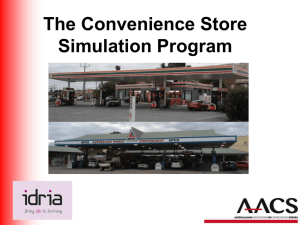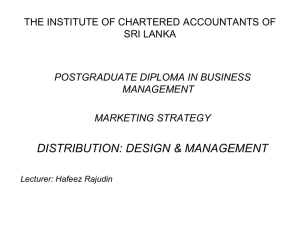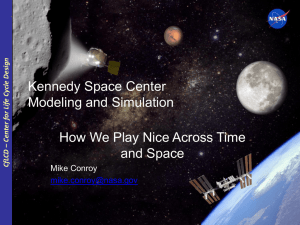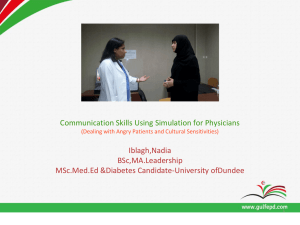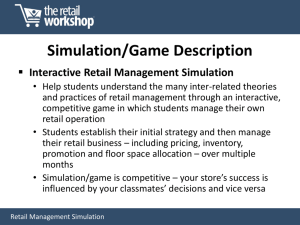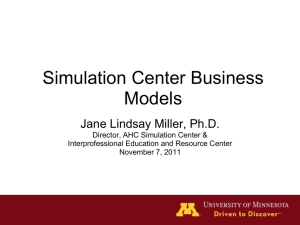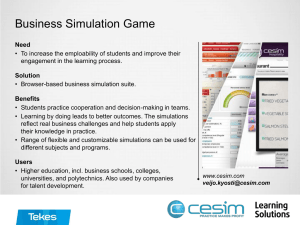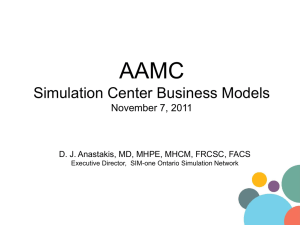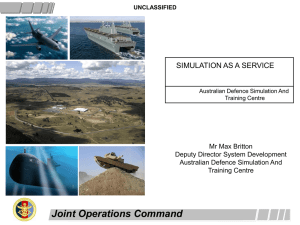to a Slide Presentation with more information
advertisement
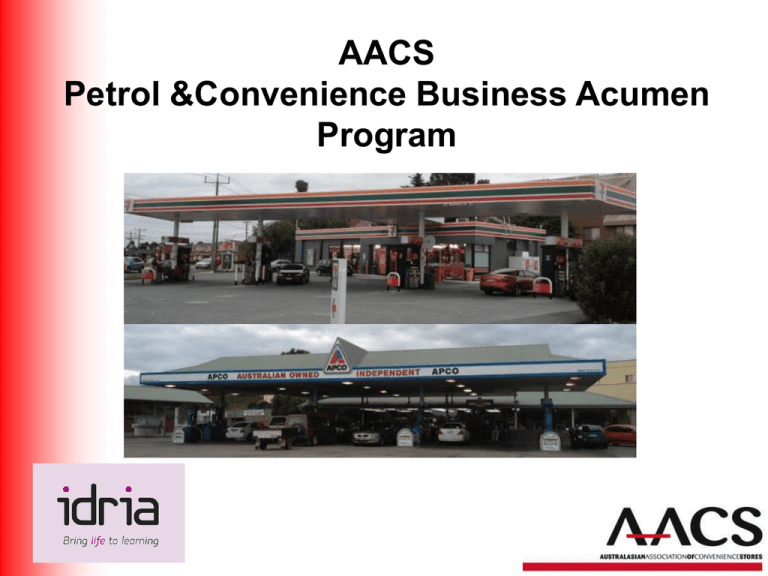
AACS Petrol &Convenience Business Acumen Program Why this program? • Clearly identified need in the marketplace • Recognised skill gap amongst staff • Need to make suppliers and retailers walk the same walk, and talk the same talk – in short, help them to understand each others businesses • Time sensitive – needed to be short and punchy but stacked with learning • Industry specific – a need for customisation Finally, an industry specific training program to help me understand margin control!!! Audience • The AACS Petrol & Convenience Business Acumen Program is an action-charged, team based training simulation experience. It’s also uniquely hands-on – and that means no long-winded speeches or long, complicated training manuals. Best of all, everyone can benefit with realistic problem-solving concepts – from beginner to MBA levels. • It makes ideal training for: • Suppliers to the Retail Trade • Retail Store Franchisees • Company Store Managers • Retail Store Multi Site Operators • Independent Retailers • Fuel Distributors with Retail Interests • It allows suppliers and retailers to work together in a non threatening environment Some of the companies that have used this program Overview • Realistic C-Store simulation • Industry specific - developed for AACS • Workshop reflects and incorporates the most current industry issues • Develops staff confidence resulting in more informed decision making and better problemsolving skills • Simulation process supported with practical business management and financial tools • Excellent opportunity for suppliers to work with operators Objectives • Understand the relationships among different functions within the convenience store and learn to manage them • Enhance informed decision making skills by using state-of-the-art “What if” analysis tools • Develop analytical thinking, understanding of available business management tools • To enhance teamwork which leads to successful management decisions • Learn from achievements and mistakes in a risk free environment What makes this program unique? • Real problems, real solutions – immediate knowledge transfer across global cultures. It’s about the learning transfer from simulated environments to real world application • General management principles, strategic realignment, operations and merchandising strategies, investments and personnel management are all encapsulated in this state-of-the-art model environment. • When organisational success depends not only on the management of physical assets, but also on a persons ability to understand the relationships among different functions within the retail store/industry and learn how to manage them successfully, this course teaches participants the skills to do so. The Simulation Workshop Integrates …. Finance STRATEGY Operations Marketing From understanding Business Plans to Organisational co-ordination, know and understand the language of finance. Influence cash flow, manage budgets and reduce operating costs. Understand and predict the impact of non-financial decisions on financial performance, and enhance product merchandising. Focused learning sessions Strategy Strategic positioning Investments into new stores Finance Cash flow management Long term vs. short term finances Marketing Pricing Merchandising Special offers strategies Operations Labour management Ordering Working hours Budgets Income Statement Balance Sheet Business valuation Key financial indicators “What if” analysis Learn how to achieve the right balance This program incorporates areas of Leadership and Management, and helps participants understanding the difference between the two Management Leadership Style Strategy Staff Systems Skills Shared Values Customers Structure Creating Value • Create sales • Generate Profit • Stimulate Growth Customers Feel they get value for money Price, Quality, Service Share Owners Dividends Share price increases • Support • Best practice • Growth Community • Additional investment Satisfy Environmental Needs Live the values Employees Working conditions Competent & efficient Self managed Wages and conditions • Customer service • Higher margins • Innovative Solutions • Stay with the company What is simulation? NASA built the flight simulator to teach Business simulations help executives and employees learn pilots how to fly… Experiential learning has transformed traditional learning which has typically been seen as having a: • Low level of interaction • Low speed of learning Knowledge Gained Learning Methods Speed of Learning Simulation Classroom and exercises Classroom Textbook Time So why Simulation? • • • • • • Learn by doing Abstraction of reality Fun, competitive spirit created Risk-free environment Compression of time / immediate feedback Learn from others / common problem “It’s easier to forecast tomorrow, if you’ve already been there!” Simulation process TEAM CHAMPION C-Store Simulation components • 1 Operator with 3 Stores – 2 with fuel, one without • Direct competition with other teams • Decisions in Marketing, Operations, HR and Finance • Quarterly budgeting and reporting • “What if” analysis and decision tool • 1-2 hours per round. Instant feedback and debrief sessions Outcomes • Helps Suppliers understand their customers (the retailers) business • Accelerated the learning uptake and understanding of account managers and those new to the industry • Help people in the channel understand financials and formulate sound strategies • Improved business and financial acumen skills of all participants • Provides a great networking opportunity
